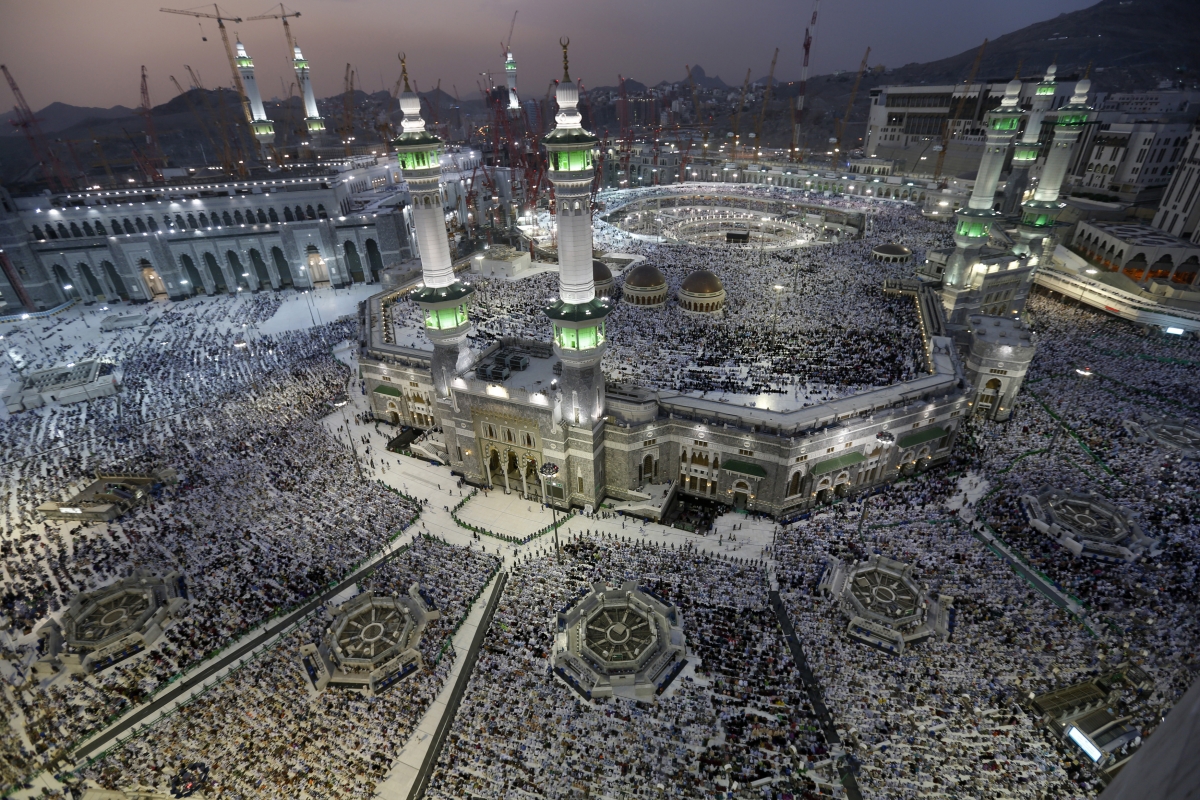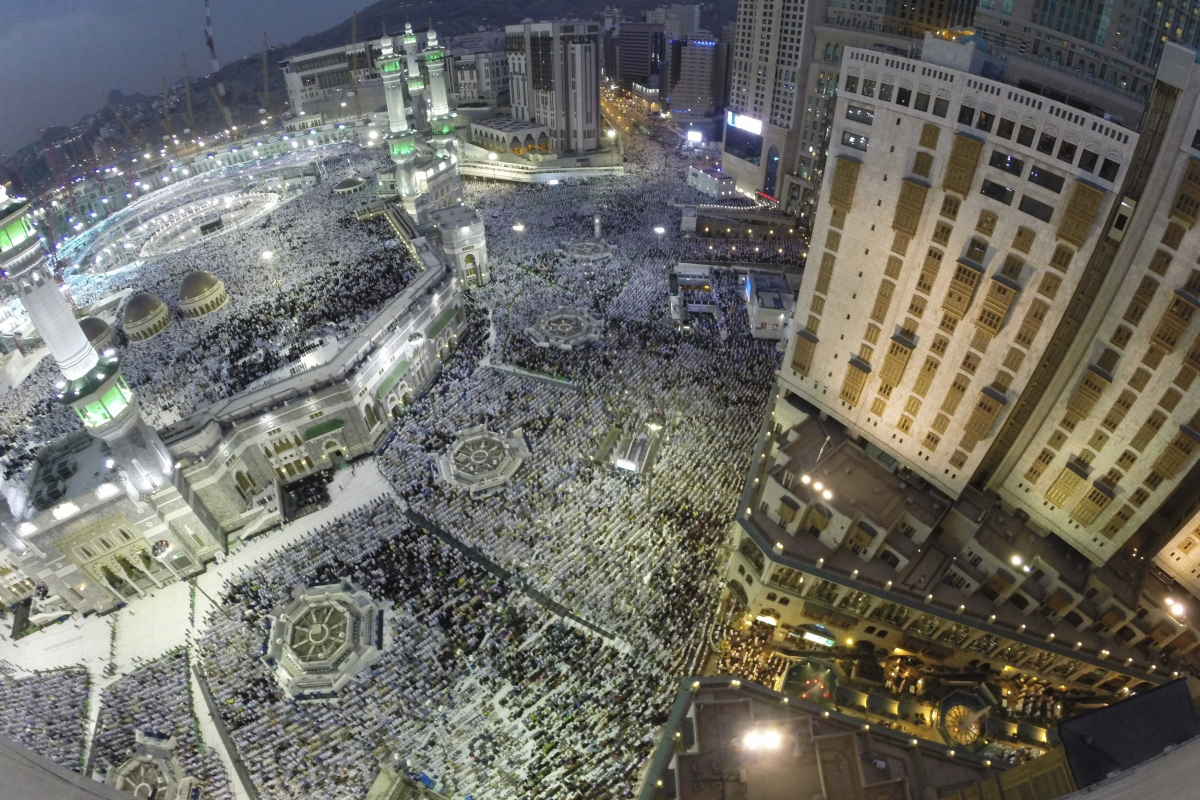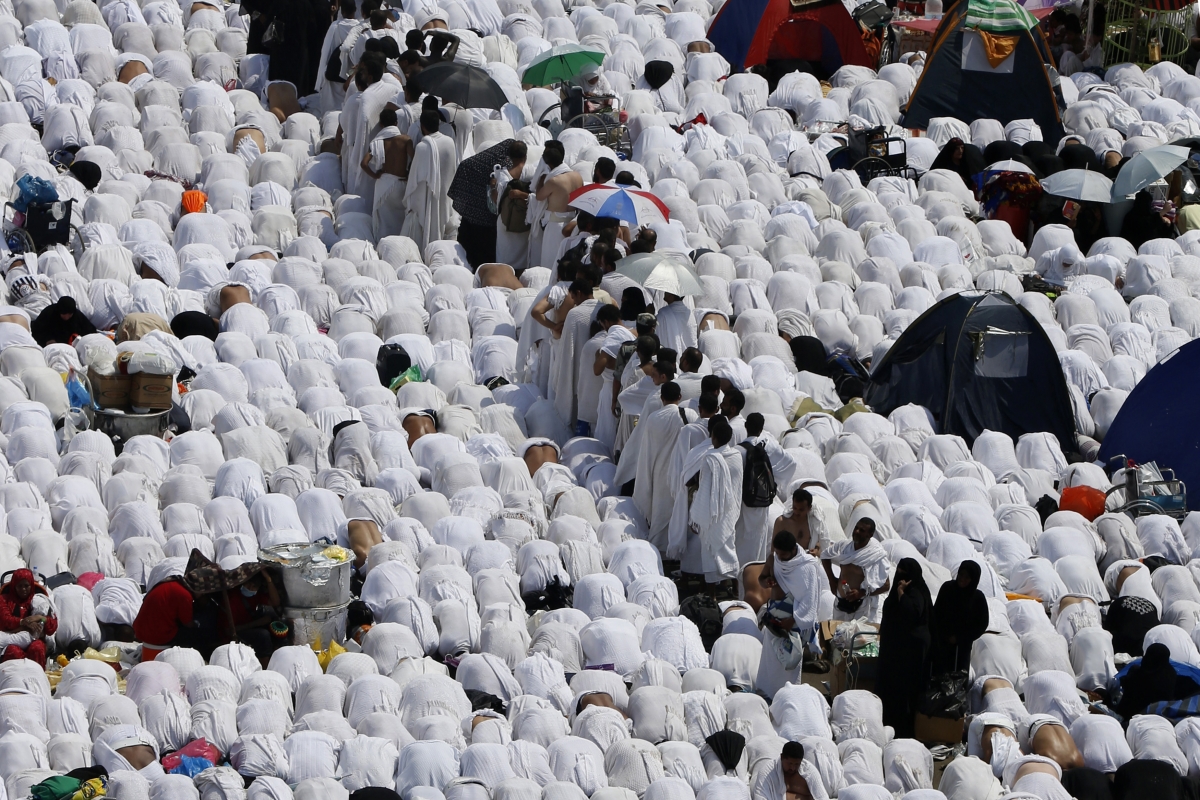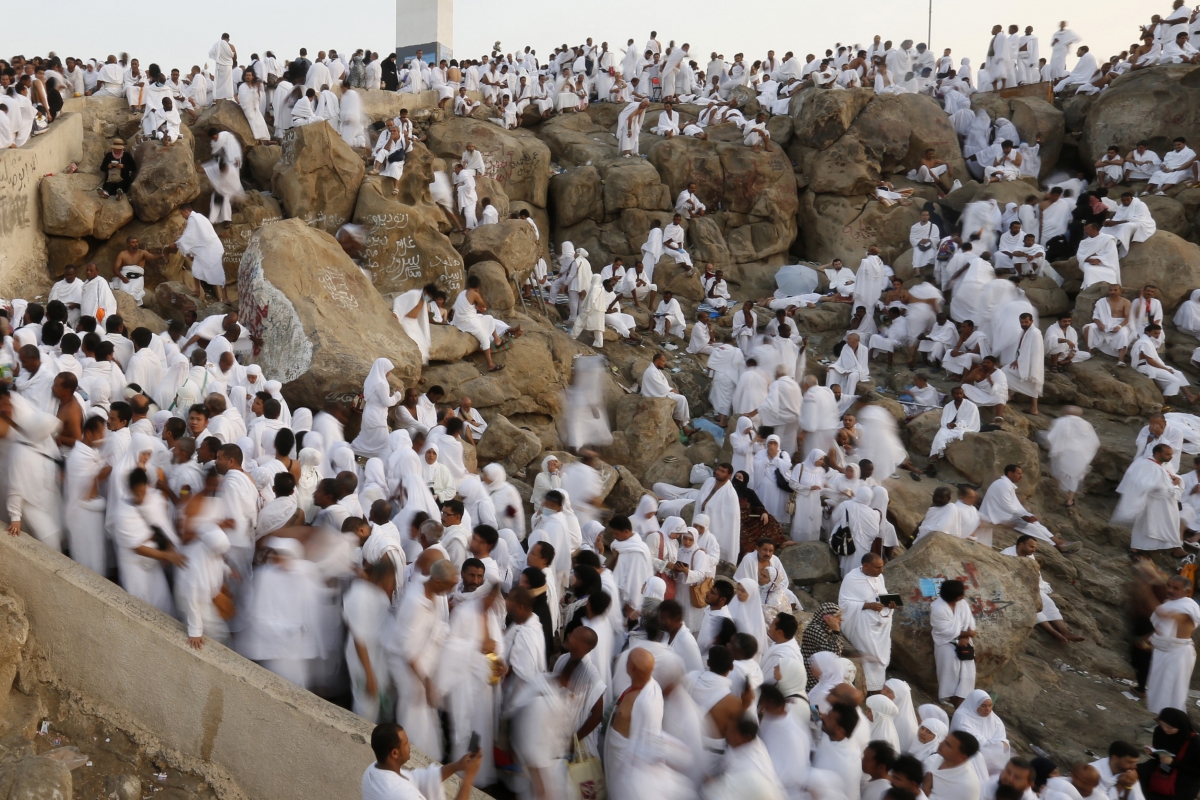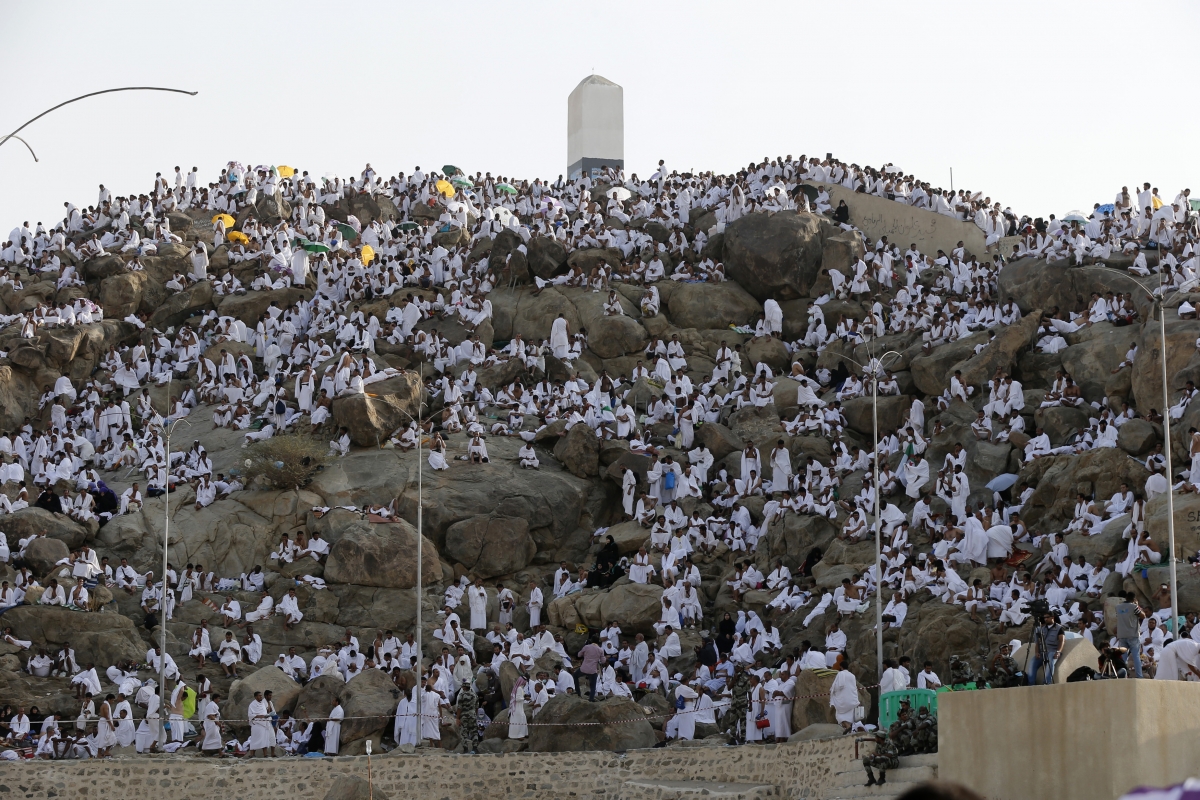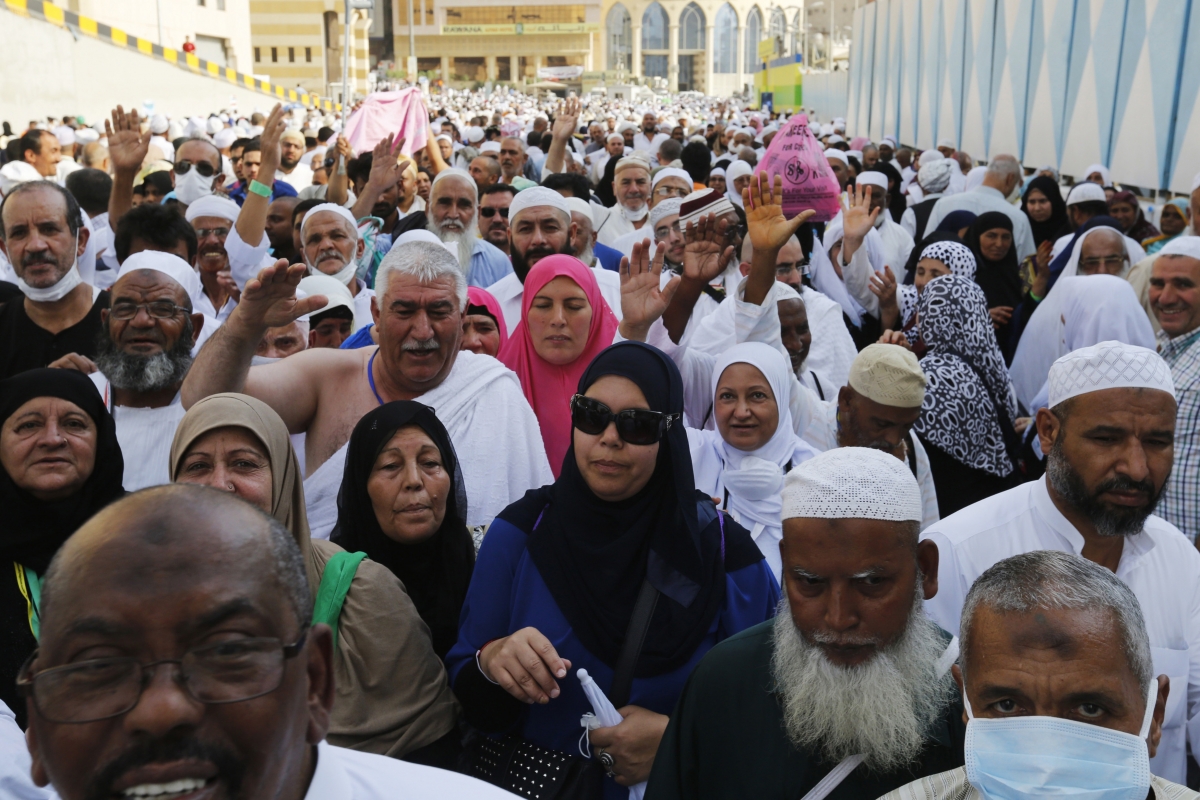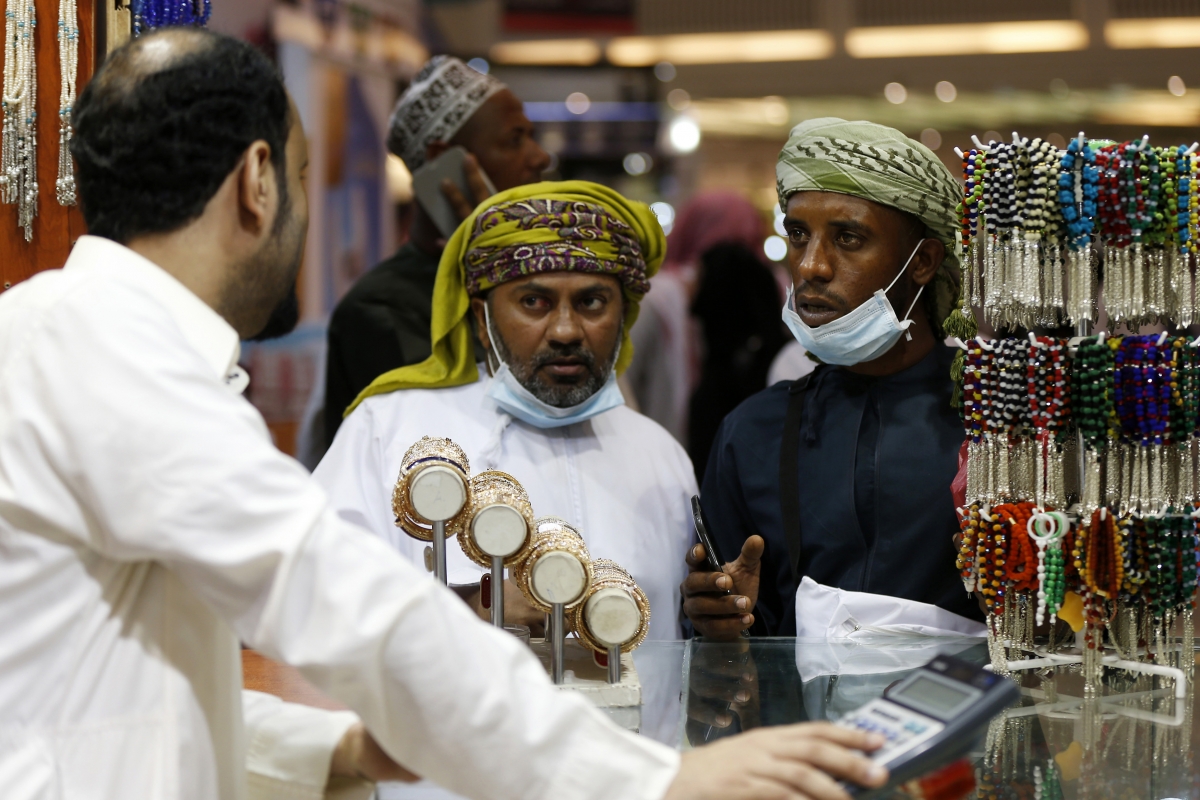Muslims around the world are wishing each other "Eid Mubarak" and celebrating the start of Islam's biggest holiday, Eid al-Adha, or the Feast of Sacrifice, which Prophet Abraham's willingness to sacrifice his son Ismail – to follow God's command. In remembrance, Muslims around the world slaughtered sheep and other livestock on Saturday, and distributed it among the poor.
Wearing unstitched folds of white cloth, more than two million pilgrims gathered around the cube-shaped Holy Kaaba at the Grand Mosque in Mecca on Saturday as they took part in one of the final rites of the annual hajj pilgrimage in Saudi Arabia.
Hajj is one of the largest gatherings of people in the world and every adult Muslim is required to complete the pilgrimage at least once in their lifetime as long as they are physically and financially capable of doing so.
However, several thousand West Africans Muslim pilgrims from the three Ebola-stricken nations, Guinea, Liberia, and Sierra Leone, were banned from making the Hajj Pilgrimage this time round. The ban also includes anyone who has recently visited the three countries most affected by the Ebola virus, which has killed more than 3,000 people and infected twice as many.
Because Eid follows the Muslim lunar calendar that depends on sightings of the moon, some Muslims will be celebrating the first day of Eid on Sunday, including Iraqi Shiites and the majority of Indonesians in the world's most populous Muslim nation of 240 million. Pakistan and India will celebrate on Monday.


